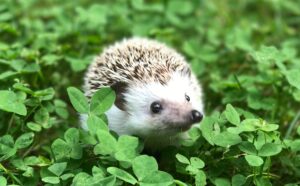 If it’s September, it must be time to add to the growing number of words and definitions admitted to the Merriam-Webster dictionary. Dictionaries like M-W chronicle “how the language grows and changes,” admitting new words as people use them in the same way over a long period of time.
If it’s September, it must be time to add to the growing number of words and definitions admitted to the Merriam-Webster dictionary. Dictionaries like M-W chronicle “how the language grows and changes,” admitting new words as people use them in the same way over a long period of time.
Sure enough, M-W added a meaty 370 new or newish words to the dictionary this month. You might recognize some of the words, especially slang, which typically takes longer to be welcome in the dictionary. M-W notes “that timeline is getting shorter as the internet accelerates the adoption of informal language.”
Here are some of the ones that particularly struck me.
In the pandemic files (the pace of these has slowed, thank goodness!)
- Booster dose: An extra dose (this year, of anti-COVID-19 vaccines) to increase the effectiveness of earlier doses.
- Subvariant: One distinctive type of the same variant, seen this year in various strains of COVID-19.
- Supply chain: Of course this description of how a product gets produced and distributed isn’t new, but hasn’t it had a workout over the pandemic? The supply chain took the blame for delays in delivering everything from avocados and flour to bicycles and lumber.
In the slang files
- Pwn: It began life as a common typo for “own,” meaning to defeat in video games.
- MacGyver: To make, form or repair with whatever is at hand, taken from the 1980s TV show of the same name. I have used this word!
In the jargon files (ugh)
- Sponcon: Sponsored content, posted by an “influencer” on social media but paid for by an advertiser.
- Sus: Slang for suspicious or suspect.
- Use case: A use to which something (like your product or service) can be put.
- Virtue signalling: To conspicuously display your awareness of political, social and racial justice issues, especially instead of taking action.
In the charming files:
- Adorkable: Socially awkward or quirky in a way that’s endearing.
- Dawn chorus: The singing of wild birds just before and after sunrise, especially in spring and summer.
- Hoglet: a baby hedgehog.
As the end of the year approaches, I’m eager to find out what will make the Words of the Year for 2022. Pandemic words dominated our lives in both 2020 and 2021. Do you think the same thing will happen in 2022?
Photo of a hoglet by Marlowe Weingart on Unsplash.
